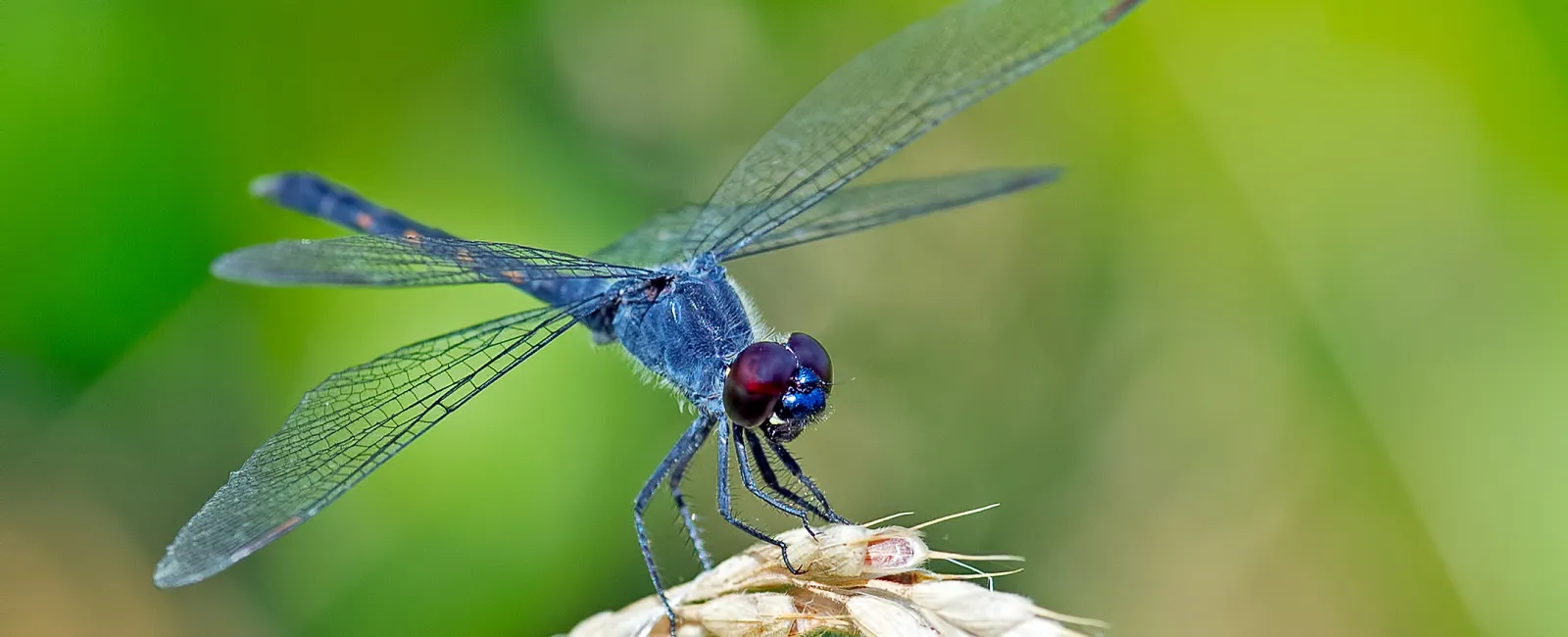Dragonflies have been around for far, far longer than any human can even imagine, so it feels only right to give them some credit. So, to discredit the misconceptions and offer some insight into the lives of dragonflies, here are a few things you probably didn’t know! As far as pest control goes, these bugs do not make the list!
Dragonfly 101: A profile of the “Infamous” Flyer
Dragonflies spend a long part of their life in the water. Before they reach adulthood, the nymphs will live completely in water, feeding on tadpoles and even fish in some cases. Water offers protection that land cannot, which is why female dragonflies often lay their eggs inside the leaves of plants and on moss.
They breathe (and move) through the end of their abdomen. Now, this may seem kind of strange, and maybe it is, but during their nymph form, dragonflies will inhale water through their anus. After bodily gas is exchanged and exhaled, the bug is thrust forward. Their tail-end also doubles as a form of jet propulsion, believe it or not.
Most dragonflies never make it to full adulthood. If you thought your odds of growing old were bad, think again. Only 1/10 dragonflies live to maturity. The final molting stage takes the better part of an hour before nymphs are able to fly, and even then, they are weak for days. This makes them vulnerable targets to predators, namely birds.
They can see really well. Although they may be at a disadvantage when young, dragonflies have no problem seeing. Thanks to their large eyes and uniquely shaped head, they have the ability to see in every direction, at the same time! As well, they use a majority of their brain to process incoming visual stimuli, which in turn makes them excellent at flying. Further to this point, it is safe to say dragonflies are acrobats of the skies. All four wings can be moved, rotated, and turned independently from one another. They can also jet up to 30 mph when necessary.
Now, hopefully the next time you see a dragonfly, you will know better than to contact a pest control company. If you have a mosquito problem, however, that is another story!

